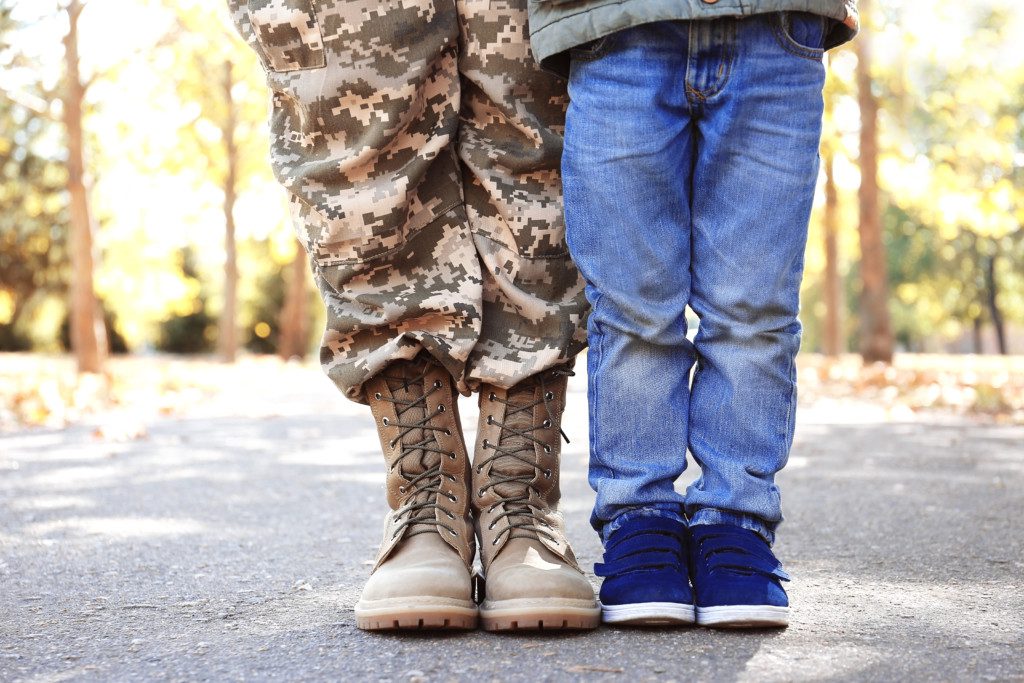Florida Board of Education approves rules for military friendly schools to become ‘Purple Star campuses’
reimaginED | By Lisa Buie | March 31, 2022
Florida schools seeking to be military friendly now will be able to earn the right to claim that designation under rules the Florida State Board of Education unanimously approved Wednesday.
The rules will govern the implementation of HB 429, which the state legislature passed with bipartisan support, and Gov. Ron DeSantis signed in 2021. The program allows schools that meet the criteria to call themselves “Purple Star campuses” and market that designation to military families.
State education officials say the program is needed to help military families, who have specialized needs because of a parent’s service.
“We are excited to present this rule to the state Board of Education as we continue to make Florida the most military friendly state in the nation,” said Jacob Oliva, senior chancellor for the Florida Department of Education, who presented the proposed rules. He said a military child typically moves six to nine times between kindergarten and 12th grade because of parents’ being restationed.
“Each requirement really solidifies our commitment to make sure our students are able to transition seamlessly in our school districts,” he said.
All schools, including charter schools and private schools are eligible to earn the designation. The Purple Star campus program has been created in 27 states, with legislation pending in eight others.
Wednesday’s vote comes after Florida state education staff unveiled the state’s proposed application process, a moment school leaders, especially those at Catholic schools, were eagerly awaiting. Many, especially those whose schools are located close to military bases, already have established programs geared toward being military friendly.
Schools are all eligible for the designation if they meet the following criteria:
Each school must designate a school counselor, teacher, assistant principal, or principal as its point of contact for military families. These staff members would be responsible for serving as a central point of contact for military families and assist with student enrollment, records transfers, accessing services for students with disabilities and accessing school and community-based resources that are available for military families.
Each school must have a webpage that includes information about transition planning, academic planning, resources and educational opportunities for military students, navigation for exceptional student education services and parental rights, mental health awareness, and other “matters of importance.”
Each school must establish a student-led transition program to help military students adjust to their new school, with a student assigned to serve as a team coordinator, as well as a military peer-support system that links new military students with other military students within two weeks of their arrival.
Also required is a process for familiarizing new students with the school that includes introductions to student leaders or ambassadors and information about newcomer social events and guided campus tours.
Each school must offer annual professional development for staff on how to identify and respond to the unique needs of military students and their families.
Each school must reserve at least 5% of controlled open enrollment seats for military students.
Each school must participate in at least three activities to support military families, which include hosting a military recognition event, having the school board issue a resolution publicizing support for military students, partnering with one or more military school liaison officers to provide volunteer opportunities for active duty parents, participating in a service project to connect the school with the military community, maintaining a public display recognizing veterans or military members or families, or offering a Junior Reserve Officers Training Corps on campus if the school serves students old enough to participate.
Schools that choose to participate must apply by Aug. 1 of each school year. Designations must be renewed every three years. Forms are expected to be available soon.
Nationally, the program, which began in Ohio, is the result of a grassroots effort aimed at helping the nation’s 1.2 million military students, who face unique challenges because of the many transitions they and their families must make that can disrupt their education and social and emotional well-being.






